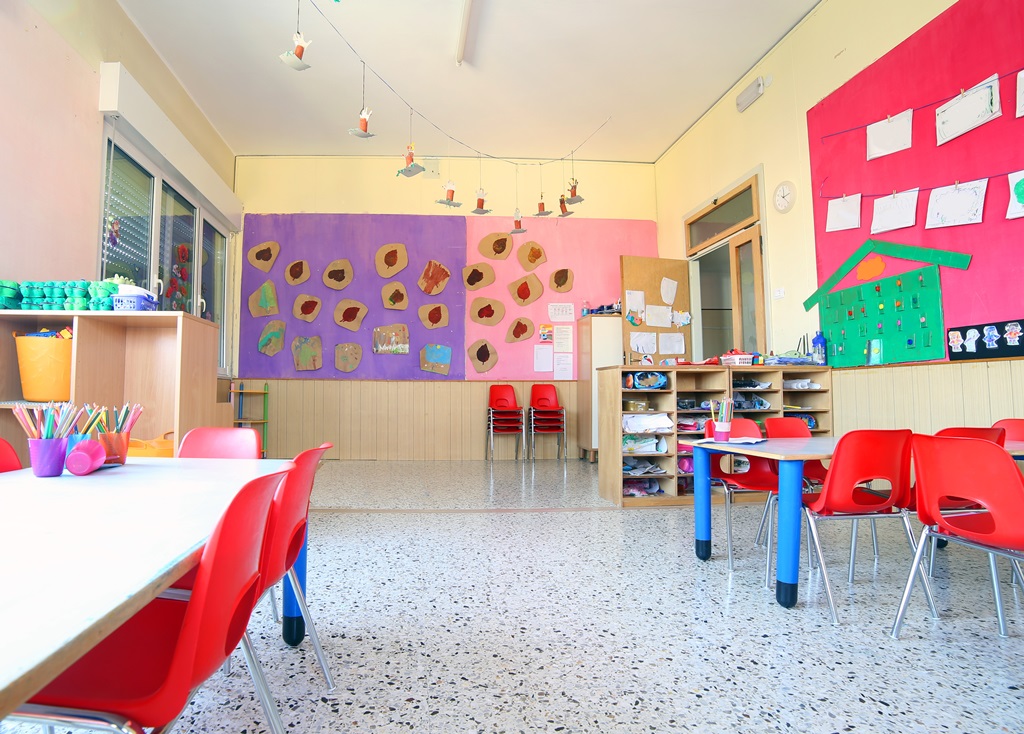- Study Says Most Parents Don’t Use Car Seats In Ride Share Vehicles Like Uber
- This 12-Year-Old Boy Is A Sophomore Aerospace Engineering Major!
- Fire Safety Experts Warn Of Hand Sanitizer Danger After A Mom and Kids Escape House Fire
- Recall Alert: Peaches May Be The Cause Of Salmonella Outbreak, 68 People Ill
- Summer Vacation In The Days Of COVID: Tips To Stay Safe
- How To Safely Grocery Shop During The Coronavirus Pandemic
- Michigan Teen With Vape-Related Illness Undergoes Double Lung Transplant
- Teen Kicks Off Anti-Vaping Campaign From Hospital Bed
- Teenager Receives Life Sentence For Strangling Sister To Death Over A Wi-Fi Password
- Toddler Falls To Death From 11th Deck of Cruise Ship
Tips For Guilt-Free Daycare Drop-Off


Every parent understands guilt. Even the best parents often feel they are not doing enough for their children. Realistically, feeling guilty is an unavoidable part of being a parent. Perhaps one of the greatest sources of guilt is the feeling that you’re not spending enough time with your kids. Kids rarely understand why you have to drop them off at daycare or summer camp when all they want is to spend more time with you. It’s hard to explain that you’re leaving them to go to work, which is necessary for their well-being and the family’s. Kids only see you leaving, and even if you understand the “logic in leaving,” logic doesn’t always quell the wrench in your gut, and you’re left feeling guilty all day. It can be heartbreaking.
In addition to the comfort of knowing that all parents feel this way, a recent study is suggesting that the amount of time you spend with your kids doesn’t matter as much as the nature of the time spent. So, it comes down to quality over quantity. This study is the first of its kind and scale, and concludes that the amount of time parents spend with kids ages 3-11 has “virtually no relationship” to how children turn out, and a “minimal effect” on adolescents. It considered factors like academic achievement, behavior and emotional well-being. The study draws a number of conclusions that could help quiet the guilt of drop-off:
- It found that time spent with children when the parent (in this case, specifically the mother) was stressed, anxious, guilty or sleep-deprived were actually detrimental on the child.
- Parents who spend most of their time with their kids under six watching television or doing nothing could also have a negative impact on the child’s development.
- Meaningful engagement was an important factor in a child’s development. Time spent reading together, or meaningful family time and one-on-one intimacy correlated to positive development. In adolescence, the only time when more time had observable differences in behavior (specifically, less instances of delinquent behavior, a common concern for the parents of teenagers)
- The study found positive associations for teens who spent an average of six hours a week engage in family time. I think we can agree that six hours a week with your teenager is not an unrealistic amount.
Here are the conclusions we can draw as parents…family time IS important, but we should worry less about how much of it we manage. Children need space and independence for social and cognitive development. And, if we focus on spending meaningful time with our children, they’ll be better off than if we’re trying to squeeze in half hours when we’re stressed or anxious – since this can actually hurt your child’s well-being.








0 comments